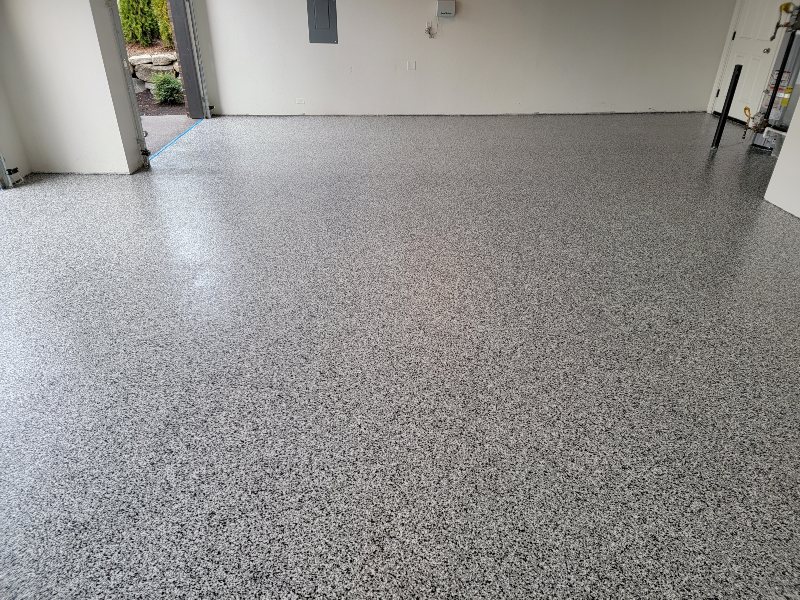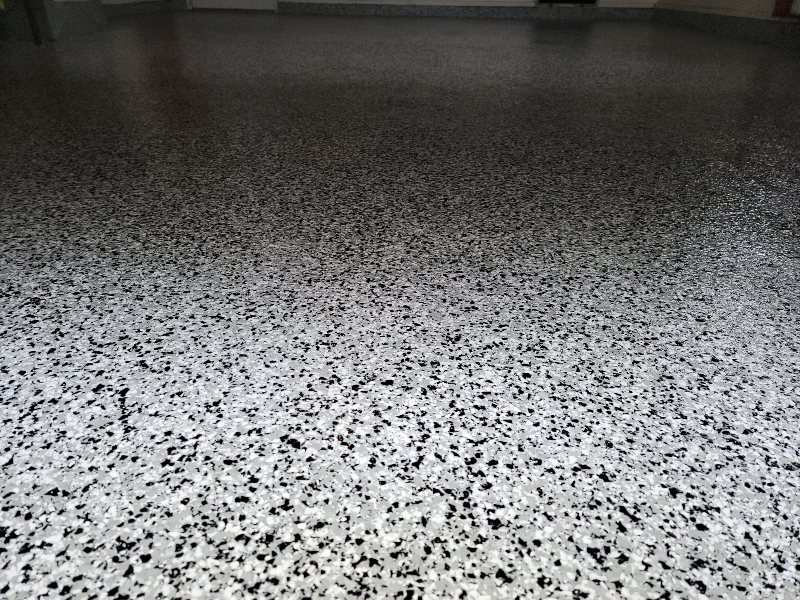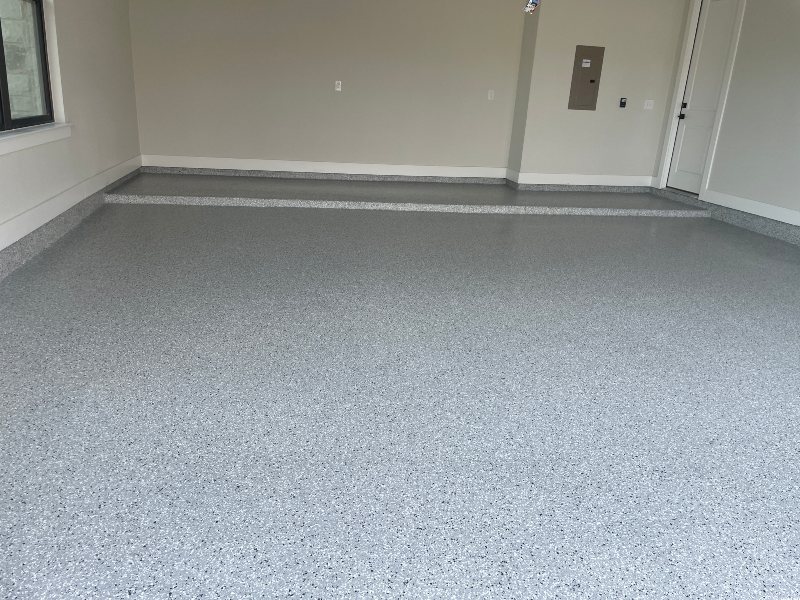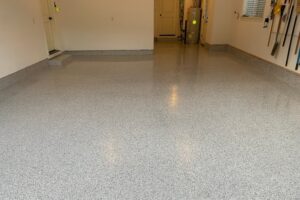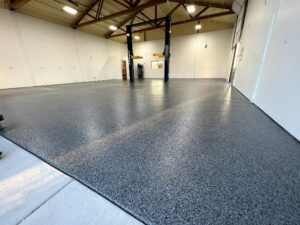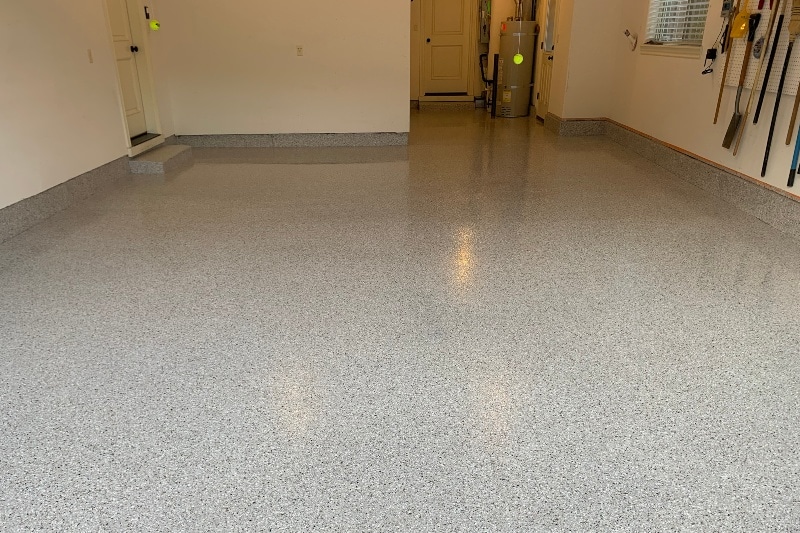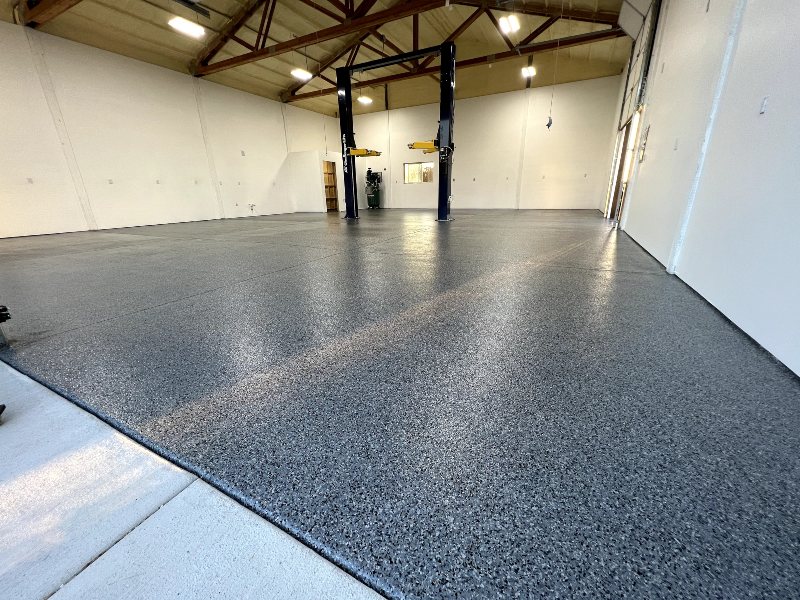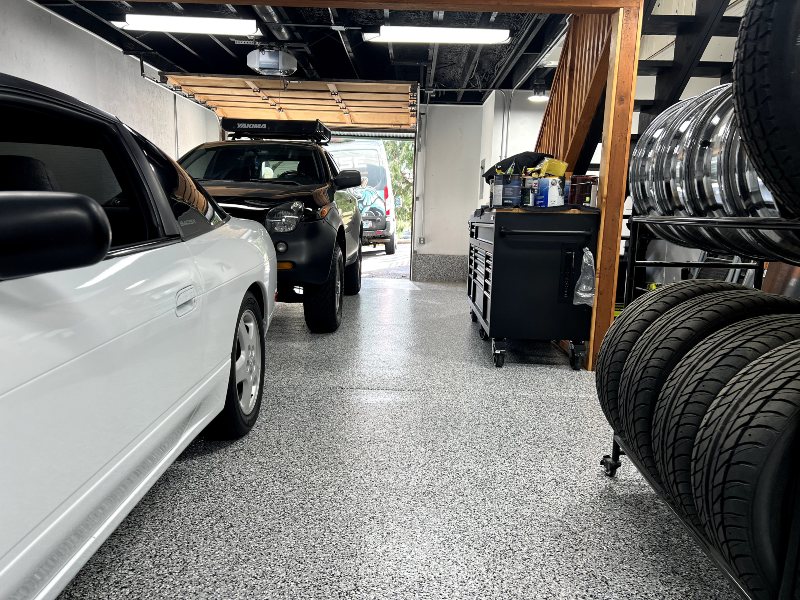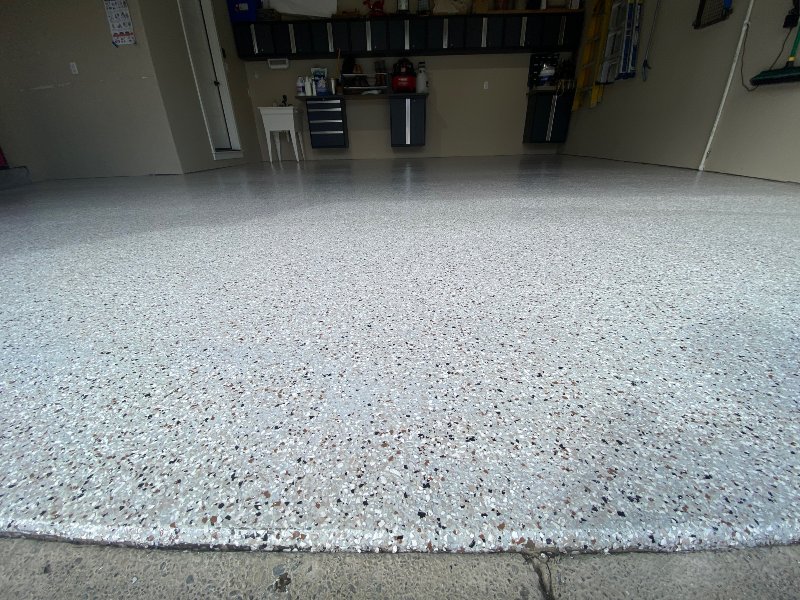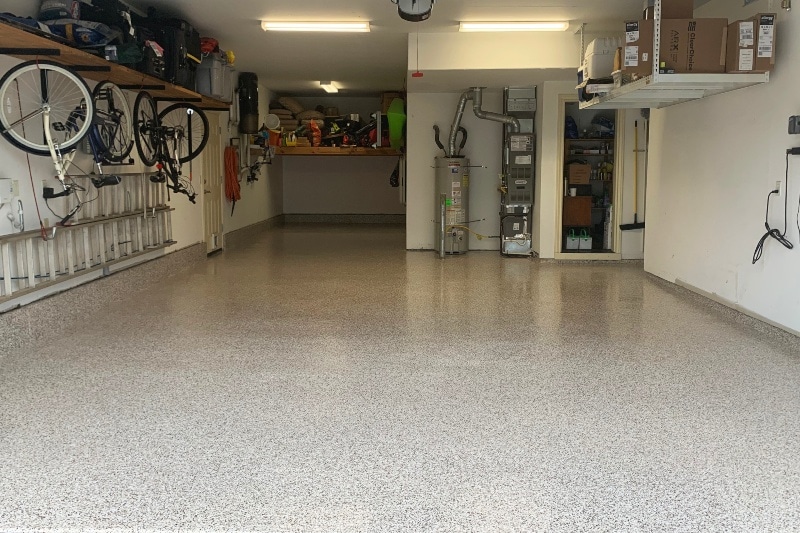Understanding the Cost of Garage Floor Epoxy: A Comprehensive Guide
Are you tired of looking at your dull, cracked garage floor? Do you want to upgrade the appearance and functionality of this often neglected space in your home? If so, then you’ve likely considered epoxy coating as a solution. As the popularity of garage floor epoxy continues to rise, so does confusion and misinformation surrounding its cost. It’s important to fully understand the various factors that contribute to the overall price before making a decision on whether or not it is worth your investment. In this comprehensive guide, we will break down everything you need to know about the cost of garage floor epoxy and help you make an informed decision for your specific needs. Whether you’re a homeowner or business owner in the market for a new garage floor, this guide will provide valuable insights on budgeting and budget-friendly options available. So let’s dive in!
The Benefits of Epoxy Flooring for Your Garage
Epoxy flooring is not just a mere aesthetic upgrade for your garage; it also brings several practical benefits. Firstly, epoxy floors are highly durable and resistant to impact, making them ideal for garages that see heavy traffic or are used as workshops. They can withstand the weight of heavy vehicles, tools, and other equipment without cracking or staining.
Secondly, epoxy flooring is resistant to oil and other fluid spills, an important quality for spaces like garages, which are prone to such incidents. This makes them easy to clean and maintain.
Thirdly, the thick and smooth finish of the epoxy floor improves lighting in your garage due to its reflective surface, enhancing visibility and safety.
Lastly, epoxy flooring is a cost-effective solution in the long run. Although the initial cost can be relatively high, the durability and low maintenance of epoxy floors make it a worthy investment that can save you repair and replacement costs in the future.
In conclusion, the benefits of epoxy flooring extend beyond its sleek, professional appearance. It brings durability, ease of maintenance, improved lighting, and cost savings, making it an excellent choice for upgrading your garage floor.
Factors that Affect the Cost of Garage Floor Epoxy
Several factors influence the cost of garage floor epoxy:
- Area of the Garage: The size of your garage is the primary factor that affects the material cost. A larger garage will require more epoxy coating, hence increasing the cost.
- Condition of the Garage Floor: If your garage floor is uneven, cracked, or damaged, it may require repair before the epoxy coating is applied, which can add to the overall cost.
- Complexity of the Job: If your garage has a complex layout or requires unique design elements, the labor cost can increase due to the additional work involved.
- Type of Epoxy Used: The cost of the epoxy itself can vary greatly. High-end, 100% solid epoxy will be more expensive than water-based or solvent-based epoxy.
- Labor Costs: If you choose to hire a professional to apply the epoxy coating, labor costs can be a significant portion of the overall expense. These costs can vary depending on your location and the specific professional you choose to hire.
By understanding these cost factors, you can make a more informed decision about whether an epoxy garage floor is a right choice for your needs.
DIY vs Hiring a Professional
When considering epoxy coating for your garage floor, you might be wondering whether to undertake the project yourself (DIY) or hire a professional. Both options come with their own pros and cons.
- DIY: Opting for a DIY project can save you the labor costs associated with hiring a professional. If you’re handy and enjoy home improvement projects, this could be a rewarding experience. However, there are some factors to consider. First, the task can be time-consuming and physically demanding. Second, achieving a smooth, even application can be challenging without professional training and tools. Finally, if mistakes occur, the costs of correction can exceed the initial savings.
- Hiring a Professional: On the other hand, hiring a professional epoxy coating service ensures that the job is done correctly and efficiently. Professionals have the necessary experience, knowledge, and tools to provide the impeccable application. While the upfront costs may be higher with this option, you’re paying for quality, durability, and peace of mind knowing that the job is done right. However, it’s vital to do your homework and hire a reputable contractor to ensure a job well done.
In conclusion, the decision to DIY or hire a professional depends on your budget, skills, time, and comfort level with home improvement projects. Being aware of the benefits and drawbacks of each option can help you make a decision that best suits your situation.
Steps Involved in the Epoxy Flooring Process
The process of applying epoxy flooring typically involves the following steps:
- Cleaning the Garage Floor: The first step involves a thorough cleaning of the garage floor to remove any dust, dirt, or grease that could interfere with the epoxy’s adhesion. In most cases, this involves power washing or scrubbing the floor with a detergent.
- Floor Repairs: If there are any cracks or damages in the floor, they need to be repaired before the epoxy coating is applied. This step might involve filling cracks with a patching compound and letting it dry before moving on to the next step.
- Preparation or Etching: This is a critical step where the surface of the garage floor is prepared to allow the epoxy coating to adhere better. This typically involves etching the concrete floor with an acid solution, which provides the surface with a slightly rough texture.
- Primer Application: A primer is applied to the floor to ensure an even and long-lasting finish. This step is not always necessary, but it helps to improve the bond between the epoxy and the concrete floor, especially in older floors.
- Epoxy Coating Application: The epoxy coating is then mixed and applied to the garage floor. In general, at least two coats of epoxy are recommended for best results. This step requires precision and careful application to ensure a smooth, even finish.
- Drying Time: Once the final coat of epoxy has been applied, it needs to dry fully before you can use the garage. The drying time can vary depending on the type of epoxy used, but it typically takes at least 24-72 hours.
- Top Coat Application (Optional): In some cases, a top coat is applied for extra durability and to give the floor a glossy finish. This is an optional step and may add to the overall cost of the project.
By understanding these steps, you can have a better idea of the process involved in applying epoxy flooring and make a more informed decision about whether to DIY or hire a professional.
Budget-friendly Alternatives to Epoxy Flooring
While epoxy flooring offers many benefits, it might not always fit within everyone’s budget. Here are some more affordable alternatives, such as concrete staining and sealing.
- Concrete Staining and Sealing: Concrete staining is a process that involves applying a colored stain to the concrete floor, followed by sealing to protect the surface and enhance the color.
- Benefits and Drawbacks: Concrete staining offers several benefits. It is highly customizable, with a range of colors and effects available. It can mimic the look of natural stone, wood, or even marble – all at a fraction of the cost. Sealing adds an extra layer of protection, increasing the concrete’s resistance to dirt, water, and wear. However, concrete staining and sealing require regular maintenance and re-sealing to maintain their appearance. They may not be as durable as epoxy flooring, especially in high-traffic areas or under heavy vehicle use.
- Cost Comparison to Epoxy: In comparison to epoxy flooring, concrete staining and sealing are generally less expensive. The cost can vary depending on the complexity of the job, the type of stain and sealer used, and labor costs if you choose to hire a professional. However, keep in mind that the lower upfront cost may be offset by the need for regular maintenance and re-sealing.
In conclusion, epoxy flooring is a popular choice for garage floors due to its durability, easy maintenance, and attractive appearance. However, it may not always fit within everyone’s budget. By understanding the cost factors and alternatives available, you can make an informed decision that suits your needs and budget. Whether you opt for DIY epoxy coating or hire a professional, proper preparation and application are key to achieving a long-lasting and beautiful epoxy floor. So, consider your options carefully, and enjoy a garage floor that not only looks great but also withstands heavy use for years to come.


